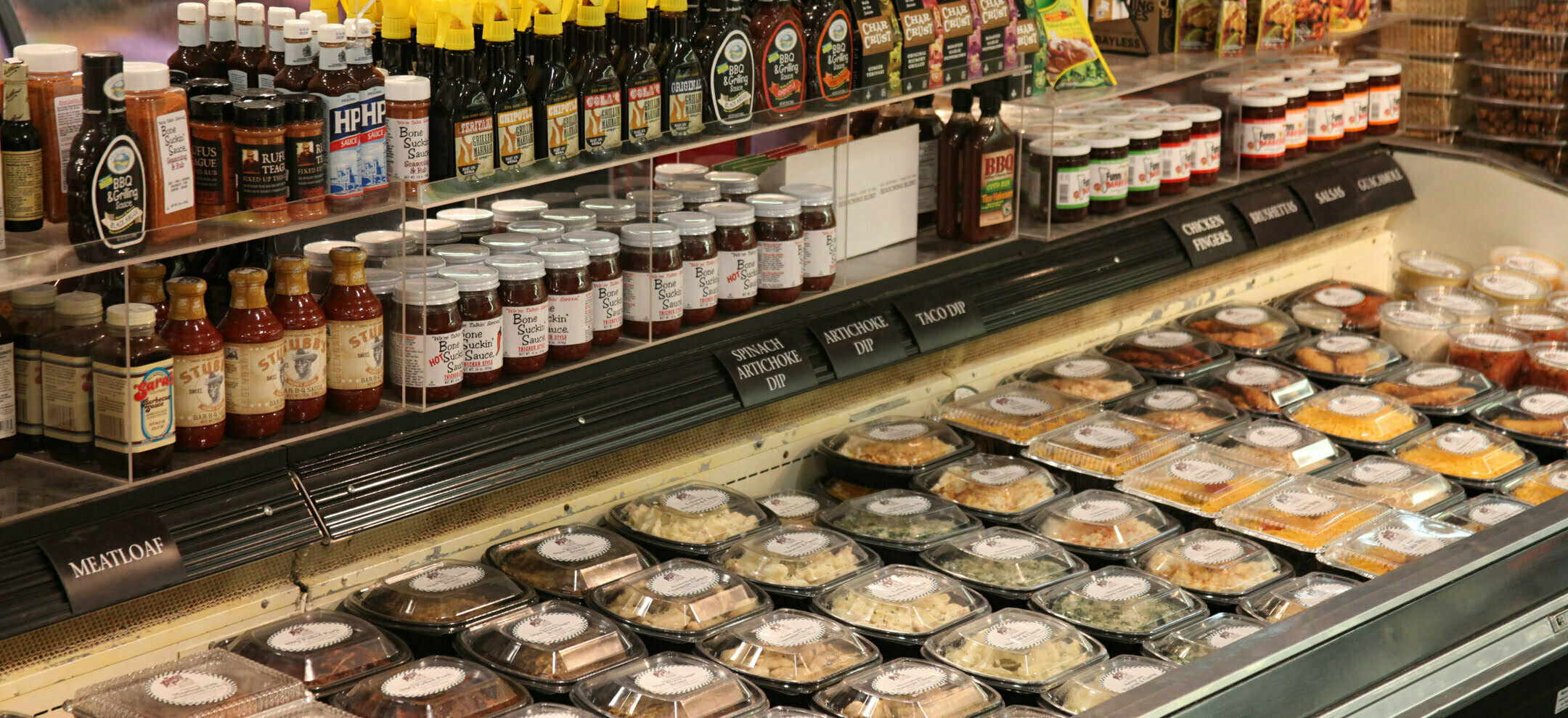Prepared Food – Why it’s miles Making Us Sick
The question of proper meals protection is of critical interest to each customer. Still, unfortunately, it’s miles one that has these days been more significant or much less befogged by using partial and selfish commercial hobbies and way of the warmth of controversy.

Today’s meals industry is quick to assert that their destruction of essential vitamins in meals is necessary to keep away from the rotting of meals, which justifies radical measures like fumigation, irradiation, sterilization, and pasteurization, and chemical remedies. In fact, it’s simply all approximately maximizing profits with the least possible attempt and with utter brush aside for the sustainable health of the clients. Their accurate timetable becomes blatantly clean while we recall how difficult they lobbied regulatory groups to get permission to deceive and defraud the purchaser: California Almonds are categorized as Raw Almonds, but they may be pasteurized.1 So if – as they claimed – the nutritional fee is the same, why would not they expose the information? Obviously, God did not create meals to kill us with its pathogens; as an alternative, he endowed his early human beings with the knowledge to preserve their food. Here is the affirmation from the beginning of human development, while God advised Noah what to deliver to the ark for the survival of all species: Two of each sort of hen, of each kind of animal, and of each kind of creature that moves alongside the ground will come to you to be kept alive. You are to take each food to be eaten and keep it away as food for you and them. Genesis 6:20-22
Scripture would not explain how the meals were preserved at the ark for most of a year, so we ought to search for the evidence someplace else. We should not be surprised that the food kept in historical times did not break its nutrients but definitely delivered flavor. Of course, the climatic situations within the Middle East, collectively with the indigenous form of meals, allowed preservation by using herbal solar drying. It is achievable that the ark team, collectively with all the animals, may want to have survived honestly on solar-dried meals; logistically, dried food is mild and space-saving, and since it rained continuously, they had enough water to hydrate the food previous to cooking. Fish, meat, grains, pulses, peppers, herbs, seeds, dates, figs, all other results aside from citrus have been apparently accessible selections. There was proof observed in Egypt that tribesmen used solar drying to hold fish as early as 12,000 years B.C.
Based on various historical artifacts determined inside the location, we can also presume that Noah’s circle of relatives had way more variety than dried food. In Egypt, archaeologists determined jars of honey that tasted flawlessly scrumptious after thousands of years, and they used honey to maintain corpses. Alexander the Great had requested to be embalmed in honey after he died in Babylon in 323 B.C. Also, alcohol fermentation and winemaking become acknowledged. One of the first matters we study Noah’s survival of the flood is that he grew wine and was given under the influence of alcohol on it. It isn’t possible that Noah’s family fed on fermented milk products inclusive of yogurt and cheese.
Pickling in vinegar and smoking meals for protection changed into also practiced within the earliest of times. Needless to say, God changed into privy to our desires to keep food, as he created seasons and nearby produce: Nature ripens extraordinary meals for one-of-a-kind seasons and climatic conditions, to emerge as available whilst and where its specific vitamins are maximum needed: so long as the earth endures, seedtime and harvest, bloodless and heat, summer season and wintry weather, day and night, shall not quit. Genesis 8:22.

Korea is rustic with hot summers and cold, snow-included winters, while nothing grows. It is little unexpected that Koreans found the art of fermenting greens, main cabbage for survival. The records of Kimchi can be traced lower back to historical times. References to Kimchi dates again to 600-1,000 B.C., whilst the first text-written evidence of its lifestyles seemed inside the first Chinese poetry book; nowadays, Kimchi is as popular as ever some distance beyond Korea for its high-quality, highly spiced flavor and digestive valuable resource.
The Chinese fermented cabbage in rice wine a few 2,000 years in the past to feed the people that built the Great Wall. Genghis Khan is stated to have delivered the recipe to Europe in which the Germans created sauerkraut in the sixteenth century. They discovered to dispose of the rice wine and fermented the cabbage with its very own juices. The Dutch and German seventeenth-century immigrants to America carried barrels of sauerkraut with them on their delivery, as the properties in sauerkraut helped fight ailment. Once people had been capable of construct ships that would resist voyages on the ocean, sailors started out getting (and loss of life from) a mysterious sickness called scurvy, which had no longer been recognized before. It was under no circumstances clean to every person that it becomes the dearth of something within the food the sailors ate (a loss of Vitamin C) that brought on the hassle. But, even if people could see that sure seafaring organizations failed to appear to be getting the ailment (usually groups who ate sauerkraut), they didn’t make the relationship for an entire long term. Even these days, sauerkraut is taken into consideration health meals and is regularly used in diets.
For early societies, the transformation of basic food materials into fermented ingredients turned into a thriller and a miracle, for they didn’t have the technology to tell what brought about the usually sudden, dramatic transformation that could regularly enhance taste and digestibility. Some societies attributed this to divine intervention; the Egyptians praised Osiris for brewing beer, and the Greeks installed Bacchus because of the god of wine. Likewise, at many early Japanese miso and shoyu (soy sauce) breweries, a small shrine occupied a crucial region and became bowed to each day. However, it isn’t easy to assume what the arena would be like these days without fermented meals. How might these months-lengthy sea trips find out and overcome other civilizations had been viable? How could people have survived long winters without ingredients that preserved its critical vitamins? Even in warm regions with plentiful sparkling produce all yr spherical, human beings developed fermentation to make food tastier and repel insects. The Pacific Islanders became artisans on this over 2,000 years ago.
The most important cause of keeping food and growing techniques to accomplish that on a large scale and long-term arose from necessity heaps of years in the past. Again, we find the reasons and the evidence in Scripture, wherein the phrase famine occurs in ninety-four one of a kind verses: Now there was a famine within the land, and Abram went down to Egypt to live there for a while due to the fact the famine turned into the extreme. Genesis 12:10. This tells us that the earliest humans in records had been no strangers to hunger, even though while there has been famine in Canaan, the Abraham circle of relatives was able to migrate to Egypt, wherein food become considerable at that point. However, Egypt suffered periodic famines, difficulty flooding the land by using the Nile River. When Joseph, the son of Jacob, became asked to interpret Pharaoh’s dream, the famine to come back was of a lot grander scale: Seven years of extraordinary abundance are coming during the land of Egypt, but seven years of famine will comply with them.
Then all the abundance in Egypt may be forgotten, and the famine will ravage the land. A lot of the land will not be remembered because the famine that follows it will be so extreme. Genesis forty-one:29-31 Scripture tells us that Joseph collected very a whole lot grain because of the sand of the ocean, and he did so thru all the seven years of lots: until he stopped counting, for it was immeasurable. Then, the yearly Nile flood, which inundated surrounding fields each autumn earlier than farmers sowed their seed, failed seven years in a row. Again, Scripture does not unveil the secrets of how Joseph managed the huge challenge of accumulating food shares some distance in extra of the wishes of Egypt, and hold it safe from spoilage: And all the countries got here to Egypt to shop for grain from Joseph, due to the fact the famine changed into extreme in all of the worlds. Genesis 41: fifty-seven. Although it’s miles a topic of discussion that Pharaoh Joseph served, evidence strongly factors to Pharaoh Djoser, who reigned Egypt (round 2630 – 2611 BC) for the third dynasty’s duration. One would think that food storage in these actually Biblical dimensions would leave some artifacts for our instances, especially as Egyptian buildings from antiquity have been so nicely preserved. Indeed, such massive storage boxes couldn’t have vanished without a hint, as they could not have been hidden at the time – and cheerful, they found them. The complex at Sakkara is unique – not anything aadoresit has ever been located. It changed iasdefined by William Hayes as a veritable city in itself, deliberate and done as a single unit and constructed of excellent white limestone from Mukattam Hills’s close. For all that, we may in no way fully rrecognizehow they preserved meals over fourteen years, maintaining their nutritional fee and retaining it safe from mold, bugs, parasites, and another manner of spoilage. However, grade by grade, even that conundrum unearths solutions: most effective these days; an Israeli research crew posted its analysis of grain artifacts observed at the bottom of the garage packing containers at Saqqara.

The Chinese cultivated the method of developing just in time to comfy the supply of clean produce all 12 months-round. During the Han Dynasty (206 B.C.), imperial kitchens grew vegetables in hothouses, so their availability became not limited via the season. In the last years of the Eastern Han Dynasty, food sweetened with honey commenced appearing in the palace. The usage of fermentation to make staple foods turned into already been widely known in China at the moment. In precis, we can become the nation with the reality that our early ancestors developed the artwork of survival by saving food from spoilage and providing it in hard times. People survived and thrived on nutrition as it changed into bestowed on us for thousands of years, without changing the meals, without stripping it of nutrients, and without making it indigestible with the aid of processing. Our ancestors in all sector components became food into feasts and created a massive kind of tasty, healthy food, and they diligently preserved its nutrients. These early artisans enabled the development of the meals’ way of life.





